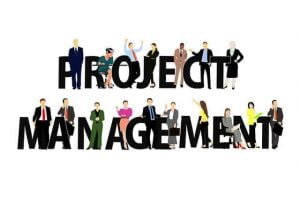Project management is an increasingly popular career choice. However, it can also be very competitive, therefore having a strategy to make your project manager career the best it can be is a wise move. It is a profession which requires a whole host of skills to be honed and continually developed if it is to be a fulfilling and successful career. Many of these project management skills are learnt through years of experience, whilst others can be developed through training courses and coaching sessions. One thing is certain, to excel as a project manager you need to be prepared to put in plenty of dedication and hard work. Keeping in mind these 15 strategies will help you to keep your career on track and achieve the results that both you and your employer are looking for.
Be Flexible
Try not to become too fixated on your list of processes. As a project manager you will have a carefully planned schedule to follow. However, a good project manager will understand that no matter how good their plan is, unexpected things happen, and they must be prepared to shift away from the original plan if necessary. Project management is not a box ticking exercise and the most successful managers will understand that fluidity and flexibility are the order of the day.
Project management is becoming increasingly flexible, and more agile practice is being continually introduced. Project managers, therefore, need to demonstrate that they can respond in an agile way to challenges. Although a fast-paced flexible style of project management is not without risks, research shows that businesses with high organisational agility meet goals more successfully.

Know That Tight Deadlines Can Be Helpful
Projects that are turned around in the quickest time are often the most efficiently executed. Don’t be afraid of tight deadlines because the closer to a deadline you get, the more focused you and your team become, and the necessary tasks are completed in the most time efficient way. Less time is spent on unnecessary meetings and procrastination. Projects that stretch over a long period of time are often the ones that fall by the wayside and are never fully completed.
Identify Your Strengths
Try to understand your strengths. Are you a strong negotiator and a people person or are you particularly skilled in organisation? Maybe you are better at overall strategy rather than day to day operational tasks. Be honest with yourself about the areas in which you excel. It may be helpful to talk to colleagues and managers in an attempt to do this because self-analysis isn’t always easy.
When embarking upon your project manager career you can then aim to work to these strengths. Don’t be afraid that narrowing your focus will make you less desirable as an employee, in fact doing what you are good at makes your job less stressful and makes you more productive. It is a great way of achieving your state of flow where you are fully immersed and enjoying your work. Employers want to maximize your potential and striving to work to your strengths is a good way of doing this.
Beware Perfectionism!
Obviously attention to detail is essential and a good project manager will seek to go the extra mile in delivering excellence, but constantly striving to achieve perfection can be harmful to a project as it can become stuck in a rut and you become unable to move on to the next stage until the previous one is completed perfectly. This can slow down the entire process and your team can become demotivated as a result.
A perfectionist can be very frustrating to other members of the team by obsessing over all the small details. You also risk passing on your bad habits to more junior members of the team who are looking to you to learn new skills. It can also mean that resources become focused on the one area of a project that you want to improve, leaving other areas to become under resourced.
Clues that you may be more of a perfectionist than you think include taking back a task which has been delegated to another person previously or having regular requests for direction or approval from people who should be capable of handling a task. A team can become nervous about meeting your exacting standards and seek more of your input than is actually necessary. This is a distraction for you and frustrating for them.

Realise That Distractions Are Your Enemy
If you spend too much of your time surrounded by distractions, such as electronic devices beeping away with different alerts and your phone ringing with different queries then you may find that your productivity takes a nosedive. Smartphones are notorious for reducing productivity at work. Learn at an early stage that organising your day to minimise disruptions and distractions is key to finding the space to focus on your current project. This could mean turning off your email alerts and allocating a time in the day when you check them or allowing your phone calls to go to voicemail and then returning them at a more convenient time.
You may feel that you should be responding to people immediately but actually your response will usually be more valuable once you have time to think and focus on the task in hand. Other great ways of increasing your productivity and being less prone to distraction include eating healthily at regular intervals throughout the day as it enables you to concentrate better and avoid post meal slumps. Schedule in some mental breaks too by moving away from a screen for a few minutes.
Manage Risk
Reducing risk in a project is an important strategy in order to build a portfolio of consistently successful projects. As part of your project management training you will have learnt about identifying potentially risky situations and managing them on a continuous basis. A skilled project manager will identify risk, analyse it, mitigate the risk and communicate their findings to the team at the outset so that everybody can be managing risk throughout the project.
Become Certified
Studying for project manager qualifications is one of the most effective ways to achieve industry standards in competencies such as PRINCE2, PMP and APM. Training for both PRINCE2 and APM can be particularly beneficial as they offer different yet complementary skills. Training in Agile is also becoming more desirable particularly in the IT and creative industries. Certification will help you to be taken seriously in your project manager career and proves that you have received formal training in addition to a CV full of good experience.
Tailor Your Experience
Although project management skills are transferable, it is often advisable to seek as much experience as you can in your chosen field. Although there are a huge number of different project management roles out there, try to be loyal to the industry that you wish to work in. Work experience specific to the industry in which you wish to build your career is particularly important as different industries require specific skills and qualifications. That said, if you do want to switch industries for whatever reason, it is possible to do so and still have a successful project manager career.
Avoid Jargon
You will no doubt pick up jargon working on projects and whilst this can be really useful shorthand when communicating with your peers, try to avoid it wherever possible when communicating with clients, stakeholders and senior executives. People who don’t move in the project management world may feel uncomfortable with jargon that they don’t fully understand. Try to use the language common to the industry that you are working in. Using words and language that people are familiar with helps you to build a rapport with them more easily.
Be Ambitious
Take on tough challenges and show that you have ambition. If you take on a difficult project, find solutions, work hard and succeed on order to show that you are a problem solver. The toughest achievements are the ones you can be proudest of and the ones that employers will be keenest to see.
Know That People Skills Are Key Project Management Skills
It is your responsibility to ensure that the team are working well together and if you do not manage your people properly and fail to create a cohesive team then you will find it is more difficult to deliver on your project. Equally, employers and clients wish to see excellent communication skills and leadership from the person that they are going to put in charge of their important project. Effectively managing conflict is a key skill too. Unless conflict surrounding any aspect of a project is well managed, it runs the risk of damaging the project.
Develop Your Soft Skills
Communication isn’t the only soft skill that you will find useful in your career as a project manager. Other soft skills such as organisational skills, time management and problem solving are invaluable in your day-to-day role. You also need to be an effective decision maker. Sometimes you will need to be stubborn and stick to your guns, and other times you need to know when to listen to other points of view and negotiate. Learning the fine art of negotiation is a must. Consider attending training courses or seek coaching to try and develop your skill set to it’s full potential, your soft skills will probably improve with experience too and learning from successful project managers around you.
Learn That Networking Can Contribute To Your Success
Making connections and networks is an essential strategy to building a successful project management career. Even as a project management apprentice you should be building up your connections with valuable clients and colleagues from day one. High quality associates are the most powerful commodity you can have as a project manager. Embrace networking events even though you may feel awkward. Force yourself to become involved.
If you feel worried about your ability to network then try looking at the attendee list in advance, decide who you would like to approach and plan in advance what you can say. Once you are at an event and involved in a conversation, try your best to offer valuable contributions to the discussion. Make yourself memorable. In addition to seeking out future clients or employers, networking events are also a great way of benchmarking your success and talking through ways of improving your project management style. Speaking to other people who do the same thing as you day in, day out can be quite therapeutic as you are all experiencing the same dilemmas, challenges and successes. Finally, embrace the networking events because you may even find you have fun!

Get LinkedIn
LinkedIn is a valuable tool for any project manager. LinkedIn opens up your profile to a much wider audience and is one of the main ways that recruiters hunt for candidates. In addition to this, there are benefits to you even if you are not looking for a new job. LinkedIn enables you to connect with useful contacts and increase your network. It gives you the opportunity to build up your profile and increase your credibility as an experienced project manager. Try to utilise it to its full extent, participate in forums, post articles and pictures about your latest projects, as well as requesting recommendations from previous colleagues and clients.
Become Social
Social media is here to stay so it is in your best interests to use it properly to promote yourself and your projects. Use it regularly and enthusiastically to reap the maximum benefits. In addition to LinkedIn, aim to utilise a number of the social media platforms at your disposal. Sharing your opinions and expertise via Twitter enables you to gain visibility, for instance. Starting a blog is also a great way of putting across your thoughts, original ideas and opinions and finding a way to get your voice heard.
Whether you use just a few or all of the above strategies, you’re sure to be able to propel your project management career in the right direction.